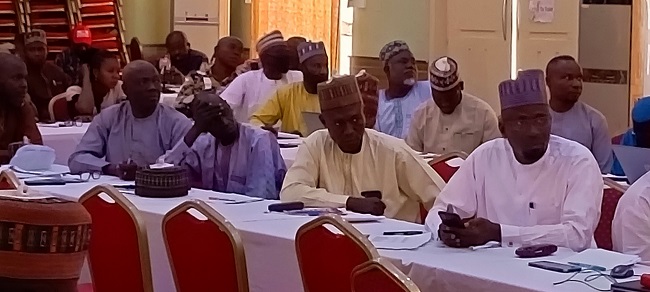Government of the Netherlands has provided funding to the Federal Government in collaboration with the United Nations Children’s Fund (UNICEF) to provide safe drinking water for a total of 997,000 rural people in three states of Adamawa, Borno and Yobe in the North-East subregion.
The commendation also reached them with Water, Sanitation and Hygiene (WASH) facilities in six LGAs of the benefiting states.
It was done under the Accelerating Sanitation and Water for All (ASWA II) project under the Directorate-General for International Cooperation (DGIS).
The project was executed in eight countries including Nigeria, Cote d’Ivoire; Burkina Faso; Mali; Niger; Mozambique; Somalia; and Tanzania.
The disclosure was made during a programme endline validation and local investment plan development meeting held at the Conference Hall of Emerald Hotels, Gombe between the 21st and 23rd of March, 2023.
The programme was implemented for 5 years (2019–2023) benefiting LGAs including Jada and Guyuk in Adamawa state, Biu and Meigumeri in Borno State as well as Fune and Geidam Yobe state.
The Implementing partners of the project are the Government of Nigeria through the state government and the local government authorities.
The purpose of the meeting was that as the programme came to an end, the meeting was organised to review the achievements of the programme, validate the end-line survey and impact assessment and develop strategies to sustain the gains of the programme through a local investment and sustainability plan.
People in the target LGAs were provided with safe drinking water just as 880,000 people stopped defecating in the open and are now using a safe and hygienic toilet facility.
Furthermore, a total of 500 new water facilities were constructed and 1,000 broken-down facilities were
rehabilitated just as 54 schools and 38 healthcare facilities were provided with basic water, sanitation and hygiene (WASH) facilities.
3 local government areas of Biu, Guyuk and Jada were declared open defecation-free (ODF) by the National
Task Group on Sanitation (NTGS) during the project implementation period.
As a result of the above achievements, the programme contributed to improved health, nutrition and well-being of poor and vulnerable people in targeted rural LGAs and communities, especially among women and girls.
The programme has also contributed to the positive reduction in “children on the move” and the outbreak of cholera diseases in the period of implementation.
DGIS is responsible for the development of cooperation policy and for its coordination, implementation and funding, an important DGIS focus is coherence between Dutch and EU policy on developing countries.
In order to formulate and carry out development policy, the Netherlands works with the governments of other countries and with international organisations such as the UN, the World Bank and the EU.
Civil society is another important source of partners, which include non-governmental organisations such as Novib and interest groups such as the employers’ confederation, VNO/NCW, and the small and medium-sized enterprise lobby group, MKB-Nederland. DGIS themes include gender, AIDS, education, sustainable economic development and the environment.
ALSO READ THESE TOP STORIES FROM NIGERIAN TRIBUNE
